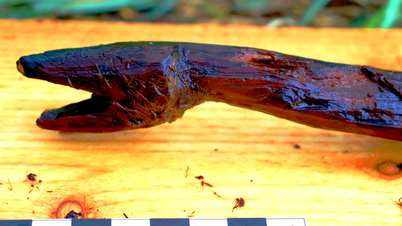Scientists at Johns Hopkins University (USA) have just announced research results showing that genetic traces of cancer can be detected in the blood 3 years before the patient is officially diagnosed.
The groundbreaking findings, reported in the journal Cancer Discovery, were a collaboration between several Johns Hopkins units and funded in part by the National Institutes of Health (NIH).
In the study, Dr. Yuxuan Wang's team analyzed plasma samples from 52 participants in the ARIC program — a large NIH-funded study examining cardiovascular risk factors.
Of these, 26 were diagnosed with cancer within 6 months of sampling, while the remaining 26 remained disease-free.
The results showed that eight people tested positive for the multiple cancer early detection (MCED) test. All eight were diagnosed with cancer within four months.
Notably, for six of them, the team found older blood samples — taken 3.1 to 3.5 years before diagnosis — and found that four of them already had signs of tumor-induced DNA mutations at that time.
“This study sets a new benchmark for the sensitivity needed for MCED tests to detect cancer at very early stages,” said study co-author Dr Bert Vogelstein.
Meanwhile, Professor Nickolas Papadopoulos emphasized: “Such early detection can open up opportunities for more effective treatment, but it is necessary to clearly define the next clinical follow-up steps after a positive result.”
The study strengthens the prospect of applying ultra-sensitive blood tests in screening and detecting preclinical cancer, helping with early intervention and significantly improving treatment prognosis./.
Source: https://www.vietnamplus.vn/xet-nghiem-mau-sieu-nhan-cua-johns-hopkins-phat-hien-adn-ung-thu-som-3-nam-post1044193.vnp






























































































Comment (0)